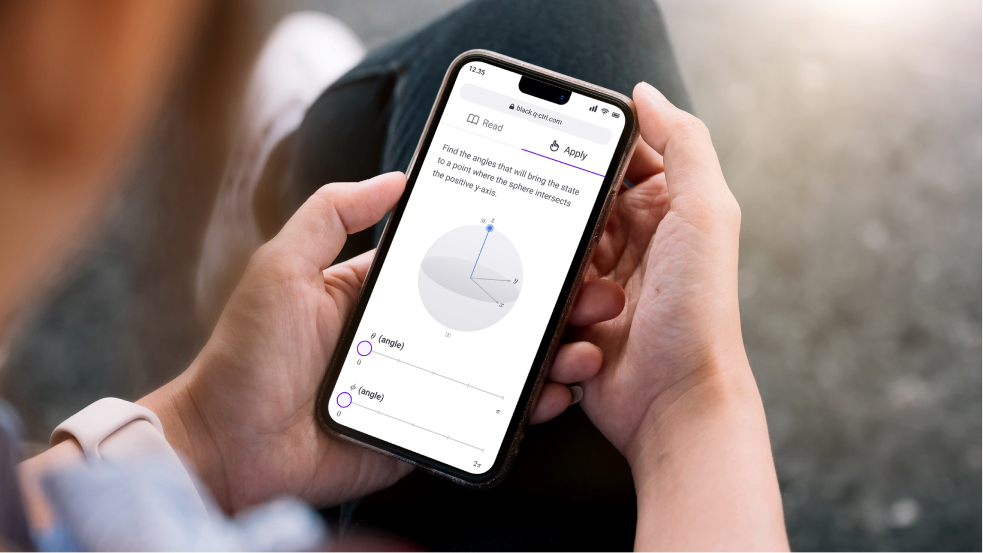Thanks to an international quantum company, local HBCU students now have the chance to get to know the quantum industry a little better than before.
Australia’s Q-CTRL, a quantum company specializing in infrastructure software, has partnered with the Quad Investors Network to increase accessibility in quantum. One way it’s done that is by offering Q-CTRL’s Black Opal educational training product to students around the country. Through the partnership, the tool will be available to students in Australia as well as HBCUs in the US.
Q-CTRL wanted to bring this to HBCU students, CEO and founder Michael Biercuk said, to introduce young students to quantum — potentially inspiring them to pursue a Ph.D. in the sector later on.
“In quantum physics, we have a bad habit of assuming that people have much more background [in quantum] than they likely do,” Biercuk told Technical.ly.
Students will be granted access to the tool through the IBM-HBCU Quantum Center, which locally includes Bowie State University, Coppin State University, Hampton University, Morgan State University, Norfolk State University, University of the District of Columbia and Virginia Union University. DC’s Howard University is the leader of the center.
Q-CTRL first released Black Opal a few years ago, Biercuk said. He described it as “Duolingo for quantum computing” through which students can easily begin learning on a computer or mobile phone, with no prior knowledge of quantum, for about 15 minutes per day. Q-CTRL plans to make the tool available starting at the beginning of the spring semester.
The tool has over 400 lessons, and teachers and coordinators can incorporate it into the curriculum because it includes tracking information to see how well people are doing. Students can also pursue it on their own in their free time.
One of the challenges in quantum, Biercuk said, is that it’s not a particularly diverse field since most work requires a Ph.D. Simultaneously, not very many students have much of a background in quantum anyway.
“We have an opportunity right now to begin shaping the workforce that we want to employ in the next few years,” Biercuk said. “So in the US, the HBCUs were a great starting point. They have already engaged with IBM, so there’s already a thirst for engagement in the quantum sector, which we’re very happy about.”
Q-CTRL expects that Black Opal will be picked up primarily by young students who aren’t yet ready for advanced physics courses. But the company also hopes it will appeal to students in fields beyond undergrad science and engineering, like politics, business development or marketing, that might overlap with quantum.
So far, Biercuk said a lot of the focus on diversifying the quantum industry has been on making Ph.D. programs more accessible. But Q-CTRL wanted to expand on that at a different level.
“For us, the different level was coming down to the base undergraduate level and trying to rope in more students who we think can be fantastic contributors to our sector, but maybe have not been exposed to it in the past,” Biercuk said. “We want to offer an easy pathway for them to enter and we’re very hopeful that Black Opal will be a part of that story.”
Join our growing Slack community
Join 5,000 tech professionals and entrepreneurs in our community Slack today!

How Two Six Technologies leverages federal contracts to expand

‘There's no soft landing’: This business leader helps fellow immigrant entrepreneurs access resources

7 things every leader should hear from Delaware’s Spur Impact Summit



